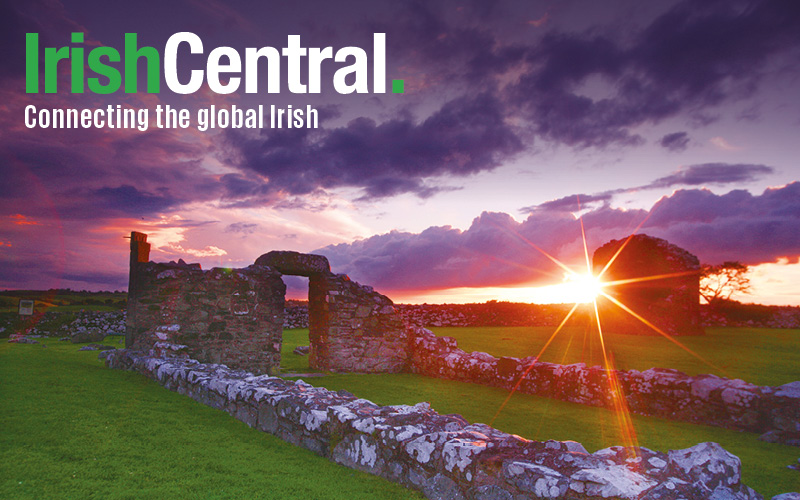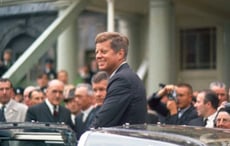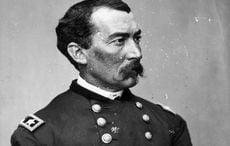| Dr Mary McAleese pictured at a church in Lowell, MA (Credit: room50.wordpress) |
Is former Irish president Mary McAleese in the frame to be appointed the first woman cardinal? In a just released interview in the Boston College Chronicle the former president makes clear the depth and range of her involvement in canon law and theology and her interest in playing a role in church politics.
There is serious talk of Pope Francis appointing a female cardinal, a task that is apparently in his purview unlike appointing a female bishop or priest.
Catholic Online reports that while unlikely that “... the pope does have the authority to appoint women as cardinals. Cardinal is not a unique rank of Holy Orders. Rather, it denotes a role of service in the Church which is hypothetically open to the lay faithful.”
The story first appeared in Spanish paper El Pais which suggested that Pope Francis is planning to appoint a woman cardinal as a way of making clear his commitment to equality in the male dominated church..
The recently elected pontiff has said that he wants women to have a stronger presence in the church.
Such a move, advocates say, would greatly enhance the role of women in the church and lead to a greater understanding of their importance.
As far as I’m concerned there is only one real candidate. Former Irish President Mary McAleese is the obvious choice.
Here is a world-accomplished woman who was enormously popular as president. Since then she has studied canon law in Rome and is currently Burns Visiting Professor at Boston College.
Just read the excerpts below from a just-released interview with the Boston College Chronicle to understand why she is the entirely obvious choice.
This is a woman who thinks deeply about her faith and is committed to working within the church structure rather than railing from outside. She would be a perfect pick and do wonders for the church.
In the interview McAleese explains why she is studying for a doctorate in canon law in Rome, saying it is an attempt to understand and change the fundamental attitude of the church as it related to abuse cases. She stated that canon law never helped the victims of abuse in any case she studied and she wondered why that was so.
She told the Boston College magazine and reporter Sean Smith that, “My interest grew because of my concern about what has been happening in my church — the sexual abuse scandal, but other things, too. When I looked at the scandal, I was struck by what investigators said about canon law and canon lawyers. It was a scathing indictment: In not one single incidence of sexual abuse had canon law been able to do anything on the victim’s side, nothing useful or helpful."
As a lawyer she said she was alarmed by this. “I’m a civil lawyer by training, and that’s been a major part of my life. I grew up Catholic in Belfast with a civil war right outside the door, in a household with parents who believed that, rather than resort to violence, we should try to use the law, try to do things democratically, by discussion, by persuasion, by discourse. So that’s where I pitched my tent, and trained to be a lawyer and use not only democratic discourse but Christian discourse, and the great commandment to love one another."
She said the sex abuse scandals in her beloved church sparked her study. “I’ve been studying canon law privately for a number of years, and have a master’s degree and licentiate in it.
“So I decided to make it my business to study canon law, something very few laypeople have done. And what I’m most interested in is, how is it that we’ve arrived at a situation in the Church where the increasingly educated laity feels more and more excluded from the discourse that is necessary to run an organization this big and this advanced?
“And how can we now trust the judgment of the people we’ve learned, to our cost, cannot be trusted in matters of children and abusive priests? Why should they continue to make decisions for the 1.2 billion of us on the same terms as before?"
She said however she could never deny her faith, "...I can’t walk away from the Church, my spiritual home, just like I couldn’t walk away from Northern Ireland, my birthplace. I had to hang in there and see if I could make some sort of contribution. I don’t flatter myself that I’ll be able to do anything in my lifetime, but I also believe that if I don’t help plant the seed, then nothing new will grow.”
Articulate, considered , brilliant, McAleese would transform the College of Cardinals. Pope Francis should really take a chance.




Comments